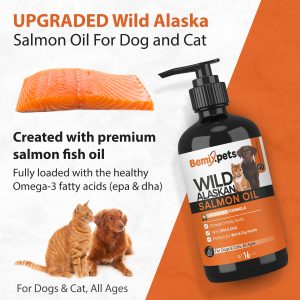Dogs and ticks have one thing in common; they both like summers.
While dogs love to go out and play during the summertime, ticks and fleas like the season because that’s when they’re most likely to find a host!
It is crucial for your furry friend’s health to keep ticks and fleas as far away from him as possible.
But, they still do find their way!
In this blog post, I will answer the question, “How to find and remove ticks from dogs?” in detail.
So, let’s get started!
Types of Flea and Tick Treatments You Can Invest In
Harmful Side Effects of Flea and Tick Medicines: What to Avoid
Contents
Types of Flea and Tick Treatments You Can Invest In
Manually finding and removing fleas and ticks from your dog’s fur is a thing of the past.
The market is now full of convenience and excellent flea and tick treatments for dogs that are 100% safe to use. These medicines fatally attack the fleas’ nervous system causing them to die and fall off.
These are pain-free methods.
While the underlying mechanism of all tick and flea medicines available on the market is the same, there are several products available.
Take a look:
- Sprays: These linger on your Golden Retriever’s skin and dissipating into the natural oils---function similar to what spot-on treatments do. But, these are highly diluted, and you will need to apply the medicine on your Goldy’s body at least once a week
- Oral chews and tablets: The tablets come with insecticides that transfer to your dog's bloodstream within the hour of your dog ingesting them. When a flea bites your Golden Retriever, it gets exposed to the insecticide and dies. The tablets work faster than any other method, but the effects only last for 24 hours.
The medicine is an excellent way to treat an ongoing infestation, but these aren’t an excellent preventative measure - Spot-ons: These treatments are available in small bottles and have a concentrate of liquid which you can apply on the back of your Goldy’s neck. Within 24-48 hours of application, the medicine starts dissipating into the natural oils on your furry friend’s skin. This kills the fleas and prevents new generations from developing for 30-45 days
- Shampoos: You can use these if you’re trying to kill adult fleas quickly. However, just like oral tablets, the effects only last for about 24 hours. Keep in mind to use these only when necessary or if your doggy friend has a severe infestation as it is incredibly potent
- Collars: The collars contain insecticides which are absorbed into that layer of fat on your dog’s neck to kill the fleas or repel the fleas.The effects of a collar last from anywhere from 6 weeks upto 12 weeks
There are various options to choose from when you’re looking to buy flea and tick treatments for your dog.
Spot-ons, tablets, and collars are the most preferred treatments as they are quick, easy to use, and painless.
However, sprays and shampoos, on the other hand, aren’t so much.
This is because they are messy and you’ll have to keep applying them after a certain period of time. This isn’t usually feasible for some users.
We recommend that you consult your vet on which course of treatment is the best for your doggy friend.
Harmful Side Effects of Flea and Tick Medicines: What to Avoid
An effective flea and tick treatment contains pesticides to kill the bugs.
But, they should also be safe for your doggy friend.
We recommend that you choose a flea and tick treatment that is approved by the Environmental Protection Agency. Keep in mind that just because a flea treatment is approved by experts doesn’t mean that it can’t cause serious harm to your doggy friend’s health and yours if mishandled.
Topical treatments are something that you should stay away from.
However, if you need to use them, try and make sure that you wash your hands after you’ve applied the treatment!
The dosage of the medicine depends on your dog’s weight.
So, what may work for your Chihuahua may not work for your Golden Retriever. Keep in mind to read the label and give your furry friend the right dose.
In this section of the blog post, I would like to go through some ingredients that you should stay away from as they aren’t approved by credible sources like the National Pesticide Information Center or the National Center for Biotechnology Information.
Take a look.
The Agency for Toxic Substances & Disease Registration cautions that Pyrethroids can cause humans to have certain side effects such as numbness, stinging, tingling, burning, and itching.
Not just that, if you have a kitty at home, you should avoid flea treatments that contain pyrethrin. While these are safe to use on dogs, they are toxic to cats and may even cause them to have seizures!
Tetrachlorvinphos
According to the EPA as well as the Humane Society overexposure to Tetrachlorvinphos can cause several side effects such as confusion, dizziness, and nausea. In rare cases, this drug may even be fatal.
Keep Those Ticks Away!
We hope that you now know how to keep these parasites away from your four-legged friend!
Ticks and fleas are extremely painful for your dog and are bad for his health.
So, it is crucial to find and remove them from your dog’s fur regularly---especially if you take your dog out for walks, treks, hikes, etc. during the summer.
Do you have questions? Feel free to ask us in the comments section!






Leave a Reply
You must be logged in to post a comment.